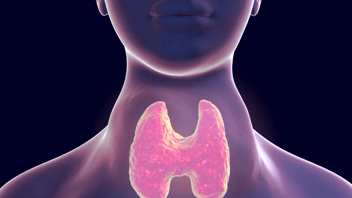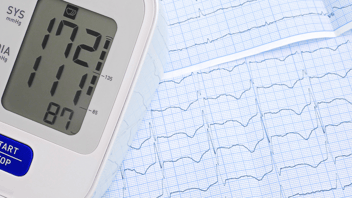Breaking Down HHNS | Assessment Therapeutic Management for NCLEX Review
%20nclex%20review%20nursing%20students.png)
Breaking down Hyperosmolar Nonketotic Syndrome (HHNS)
Understanding Hyperglycemic Hyperosmolar Nonketotic Syndrome (HHNS) is important for nursing students preparing for the NCLEX exam due to several reasons:
Severe Complication: HHNS is a serious and potentially life-threatening complication of diabetes, particularly Type 2 diabetes. Nurses need to be knowledgeable about its pathophysiology, clinical presentation, and management.
.png?width=1200&height=630&name=nclex%20review%20for%20angina%20(2).png)
Common in Older Adults: HHNS is more commonly seen in older adults with Type 2 diabetes. Nurses working in various healthcare settings are likely to encounter patients at risk for or with HHNS.
Assessment Skills: Nurses should be skilled in recognizing the signs and symptoms of HHNS, which can include severe hyperglycemia, dehydration, altered mental status, and neurological deficits.
Fluid and Electrolyte Imbalance: HHNS leads to severe dehydration and electrolyte imbalances. Nurses need to understand the implications of these imbalances and how to correct them.
Diagnostic Tests: Nurses should be familiar with the diagnostic tests used to confirm HHNS, such as blood glucose measurements and blood tests to assess electrolyte levels.
Fluid Resuscitation: Nurses play a crucial role in initiating and monitoring fluid resuscitation to correct dehydration and improve hemodynamic stability.
Insulin Therapy: Nurses need to understand the use of insulin therapy in HHNS to lower blood glucose levels and facilitate glucose uptake by cells.
Emergency Management: HHNS can lead to altered mental status, seizures, and cardiovascular instability. Nurses should be prepared to manage these emergencies.
Documentation: Accurate documentation of blood glucose levels, medication administration, fluid resuscitation, and patient education is crucial for continuity of care.
NCLEX Preparation: The NCLEX exam may include questions related to HHNS, its pathophysiology, assessment, interventions, and patient education. A strong understanding of this topic is essential for answering these questions accurately.
Overall, understanding Hyperosmolar Hyperglycemic Nonketotic Syndrome equips nursing students to provide safe, patient-centered care to individuals affected by this severe complication. It ensures that nursing students are prepared to address the unique challenges and needs of patients with HHNS and contribute to positive patient outcomes.
General for Hyperglycemic Hyperosmolar Nonketotic Syndrome (HHNS)
1. Type II Diabetes Mellitus – Acute Exacerbation
a. The body has just enough insulin to prevent fatty acid breakdown, but there is severe hyperglycemia without ketoacidosis
Assessment Hyperglycemic Hyperosmolar Nonketotic Syndrome (HHNS)
1. Hyperglycemia
a. Blood sugar > 600 mg/dL (usually higher)
b. Negative Ketones
c. Glycosuria (glucose dumps in urine)
2. Hyperosmolarity
a. PROFOUND Dehydration
b. Altered LOC
c. Dry mucous membranes
d. ↑ BUN, Creatinine
Therapeutic Management for Hyperosmolar Nonketotic Syndrome (HHNS)
1. Identify and treat the cause
2. #1 Priority = replace fluids, which MIGHT RESOLVE the hyperglycemia as well
3. Insulin Therapy
4. Monitor neurological status
5. Monitor and treat electrolyte imbalances
.png?width=1200&height=630&name=nclex%20review%20for%20angina%20(2).png)
Nursing Case Study for Hyperosmolar Nonketotic Syndrome (HHNS)
Case Study: Managing Bipolar Disorder in a Young Adult
Patient Profile:
John Anderson, a 72-year-old man with a history of Type 2 diabetes, is brought to the emergency department by his family due to altered mental status and weakness. He has been experiencing excessive thirst and urination for the past few days.
Assessment:
Upon assessment, John appears confused and lethargic. His skin is dry and warm, and his mucous membranes are dry. His blood pressure is elevated, and he has a weak and rapid pulse. Laboratory tests reveal severely elevated blood glucose levels and evidence of dehydration.
Interventions:
1. Fluid Resuscitation:
Collaborate with the healthcare provider to initiate rapid fluid resuscitation using isotonic saline to correct dehydration and improve hemodynamic stability.
2. Blood Glucose Monitoring:
Monitor John's blood glucose levels frequently to track the effectiveness of treatment and make adjustments as needed.
3. Insulin Therapy:
Collaborate with the healthcare provider to initiate a continuous intravenous insulin infusion to lower John's blood glucose levels and facilitate glucose uptake by cells.
4. Electrolyte Management:
Collaborate with the healthcare provider to monitor and address electrolyte imbalances, such as potassium and sodium levels, during insulin therapy.
5. Vital Sign Monitoring:
Continuously monitor John's vital signs, particularly his blood pressure, heart rate, and respiratory rate, to detect any signs of deterioration.
6. Neurological Assessment:
Perform regular neurological assessments to monitor John's level of consciousness and cognitive function, as hyperosmolarity can lead to altered mental status.
7. Patient and Family Education:
Educate John and his family about the severity of HHNS, the importance of adhering to insulin therapy, and the signs of complications.
8. Fluid and Electrolyte Monitoring:
Collaborate with the healthcare team to monitor John's fluid intake and output, as well as his serum electrolyte levels, to prevent imbalances.
9. Emotional Support:
Provide emotional support to John and his family, addressing their concerns and helping them cope with the stress of the situation.
10. Follow-Up Care:
Schedule regular follow-up appointments to monitor John's blood glucose control, adjust insulin therapy as needed, and assess his overall health.
Outcome:
With immediate and comprehensive care, John's condition improves. His altered mental status resolves as his blood glucose levels gradually normalize. His fluid balance is restored, and his electrolyte imbalances are managed effectively. He receives education on diabetes management and the importance of medication adherence.
Free Download For HHNS NCLEX Review
Are you looking for more must-know NCLEX review topics? Download our free eBook "NCLEX Flash Notes" as a valuable resource for nursing students. Encourage readers to download their free copy of the "NCLEX Flash Notes."
.png?width=1200&height=630&name=nclex%20review%20for%20angina%20(2).png)
You CAN Do This
Happy Nursing!




%20nclex%20prep.png?width=740&height=416&name=Hyperglycemic%20hyperosmolar%20nonketotic%20syndrome%20(HHNS)%20nclex%20prep.png)


.png?width=352&name=Easy%20Guild%20To%20Fluid%20Balance%20(1).png)